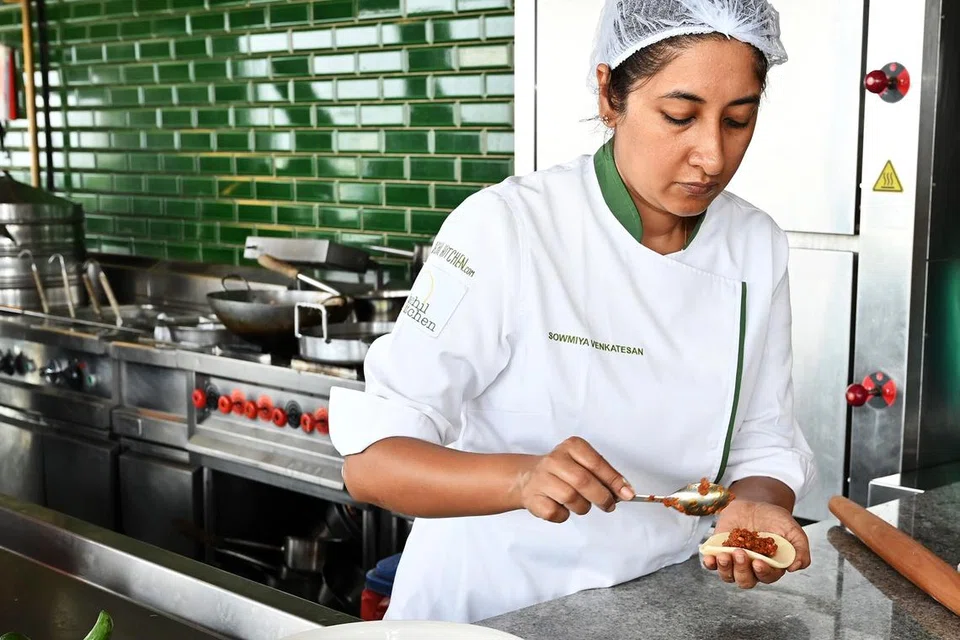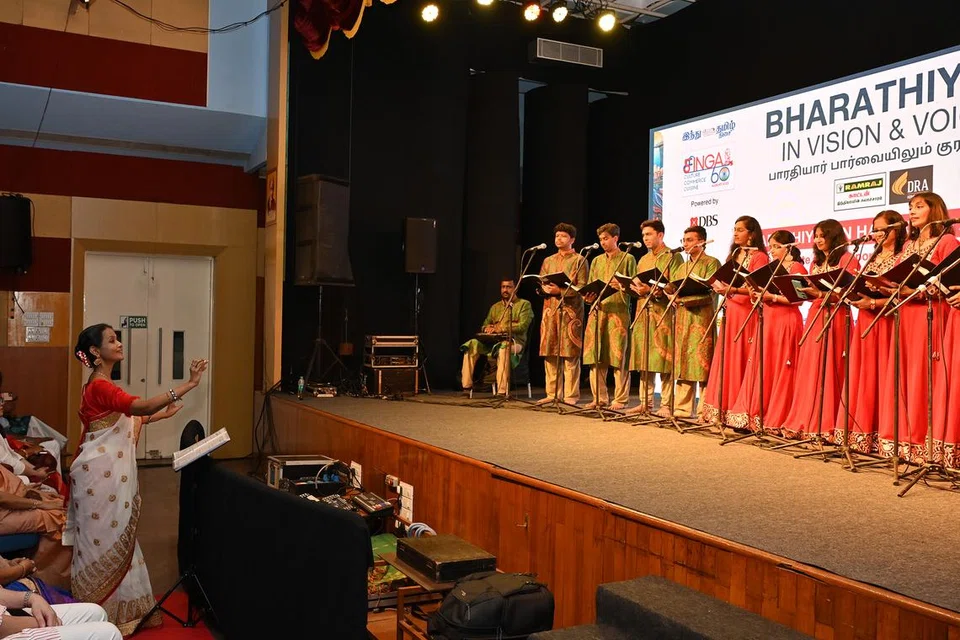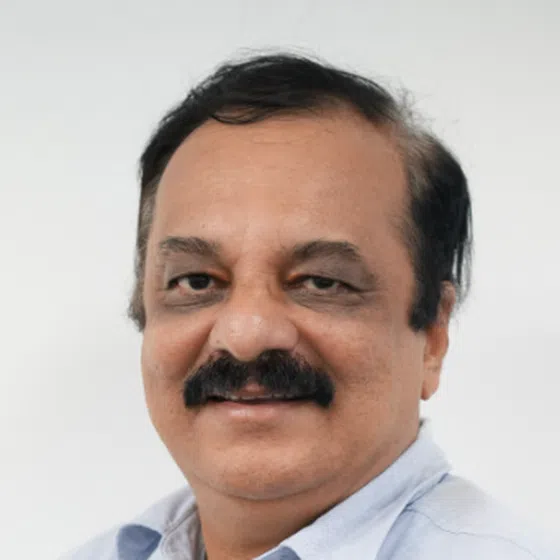Rooted in shared culture, commerce, and cuisine, the Singapore-India relationship has flourished over six decades into one of Asia’s most vibrant partnerships.
This August, that enduring bond was honoured in spectacular fashion through SinGa60 – a 10-day cultural, economic, and culinary festival that celebrated history while looking boldly to the future.
Organised by Hindu Tamil Thisai, the Tamil language edition of The Hindu newspaper, in collaboration with The Hindu and The Hindu BusinessLine, and supported by the Singapore Consulate, SinGa60 ran from Aug 1 to 10 across multiple venues in Chennai.
From art exhibitions and theatre to high-level business forums, cinema, music, and food, the festival blended tradition with innovation.
“SinGa60 showcased Singapore’s journey and developments through the ages,” said director of Hindu Tamil Thisai Akila Iyengar. “Both countries have collaborated across many dimensions, strengthening diplomatic and economic ties. Singapore companies have invested in Chennai, and South Indian businesses have used Singapore as a gateway to Southeast Asia. Through dance, music, art, and business, the festival reflected this rich exchange.”
The festival opened with Urban Expressions, an art exhibition at Forum Art Gallery in Chennai. Curated by Barathi Nayar, the show featured Singaporean and Indian artists, including Kumari Nahappan, Kavita Batra, P. Gnana, Mahalakshmi Kannappan and Aryan Arora.
Inaugurated by Singapore’s Consul-General Edgar Pang, the exhibition celebrated both Singapore’s 60 years of independence and its deep cultural connections with India.
Running until Aug 30, it offers visitors a vibrant mix of contemporary paintings and sculptures, including the special segment The Soul of the City, which captures urban life in vivid, thought-provoking forms.
On Aug 2, Rajarathinam Auditorium hosted Muchanthi, a monologue play presented by Singapore-based Agam Theatre Lab. Blending personal storytelling with social commentary and live music from a multi-ethnic band, the production examined cultural challenges in a rapidly changing world.
Cinema lovers gathered at PVR Cinemas in Express Avenue Mall for The Screen & City, a segment celebrating Singapore’s place in Indian cinema.
Screenings included the 1979 Kamal Haasan-Rajinikanth classic Ninaithale Inikkum, filmed in Singapore, alongside contemporary works such as Pickles, drawing nostalgic fans and new audiences alike.
One of the festival’s intellectual high points was the India Connect: Singapore Edition on Aug 7 at ITC Grand Chola.
Distinguished speakers included Prof Kishore Mahbubani (Asia Research Institute, National University of Singapore), Dr Anantha Nageswaran (Chief Economic Adviser, Government of India), S. Krishnan (Secretary, India’s Ministry of Electronics and Information Technology) and Jawed Ashraf (India’s former High Commissioner to Singapore).
Discussions highlighted how bilateral trade has grown from S$8.58 billion in 2005 to S$45.62 billion in 2024, and explored potential in digital technology, AI, quantum computin, and fintech.
Dr Nageswaran projected India’s GDP could reach US$5 trillion by 2027–2028, while Mr Krishnan emphasised collaborations in cybersecurity and digital infrastructure.
On Aug 9, the Rajarathinam Auditorium resonated with the words of Tamil poet Subramanya Bharathi during Bharathiyar – In Vision & Voice.
The evening featured Sakthidasan, a documentary on Bharathiyar’s life, produced by Singaporean Soundharya Sukumar. Guests of honour included actress Suhasini Maniratnam, musician Mandolin U. Rajesh, and pianist Anil Srinivasan.
The Singapore Indian Orchestra and Choir (SIOC), a 40-year-old institution, also presented an a cappella choral tribute under founding conductor Lalitha Vaidyanathan and resident conductor Vicknesvari Vadivalagan.
Performing works set to music by Rajkumar Bharathi and Radha Vijayan, the choir brought a Singaporean touch to Indian classical poetry, merging choral techniques more common in western traditions with the intricacy of carnatic music. The performance, interwoven with anecdotes narrated by Elango Kumanan, earned a standing ovation.
Food lovers converged on The Residency Towers in T. Nagar for the Singapore Food Festival segment Flavours of Singapore.
Curated by MasterChef Sowmiya Venkatesan of Kechil Kitchen, the menu featured Peranakan, Malay, Chinese, and Indian-inspired dishes. Partner restaurants such as Mr Ong, Nasi & Mee, and Zhouyu brought the Lion City’s multicultural culinary heritage to Chennai.

On Aug 6, Singaporean Aravinth Kumarasamy, creative director of Apsaras Arts, presented Threads of the Epic, exploring Southeast Asian interpretations of the Ramayana. Drawing from traditions in Thailand, Cambodia, Java, Bali, and Myanmar, he illustrated how the epic’s narratives have travelled, adapted and inspired art forms from textiles and sculpture to puppetry and dance.
Meanwhile, Singapore Through the Ages, a historical exhibition from The Hindu’s archives, traced over 200 years of India-Singapore connections – from Chettiar trading networks to modern diplomatic milestones. Panels were displayed at Chennai Metro stations throughout the festival.
Over 2,000 people attended the events, from students and professionals to artistes, industry leaders and government officials.
“This was a reverse showcasing,” Ms Akila noted. “Indian performances are often staged in Singapore, but here Singapore’s own homegrown, world-class theatre and performing arts came to India.”
The reception was so positive, she added, that organisers are considering making SinGa60 an annual festival.


